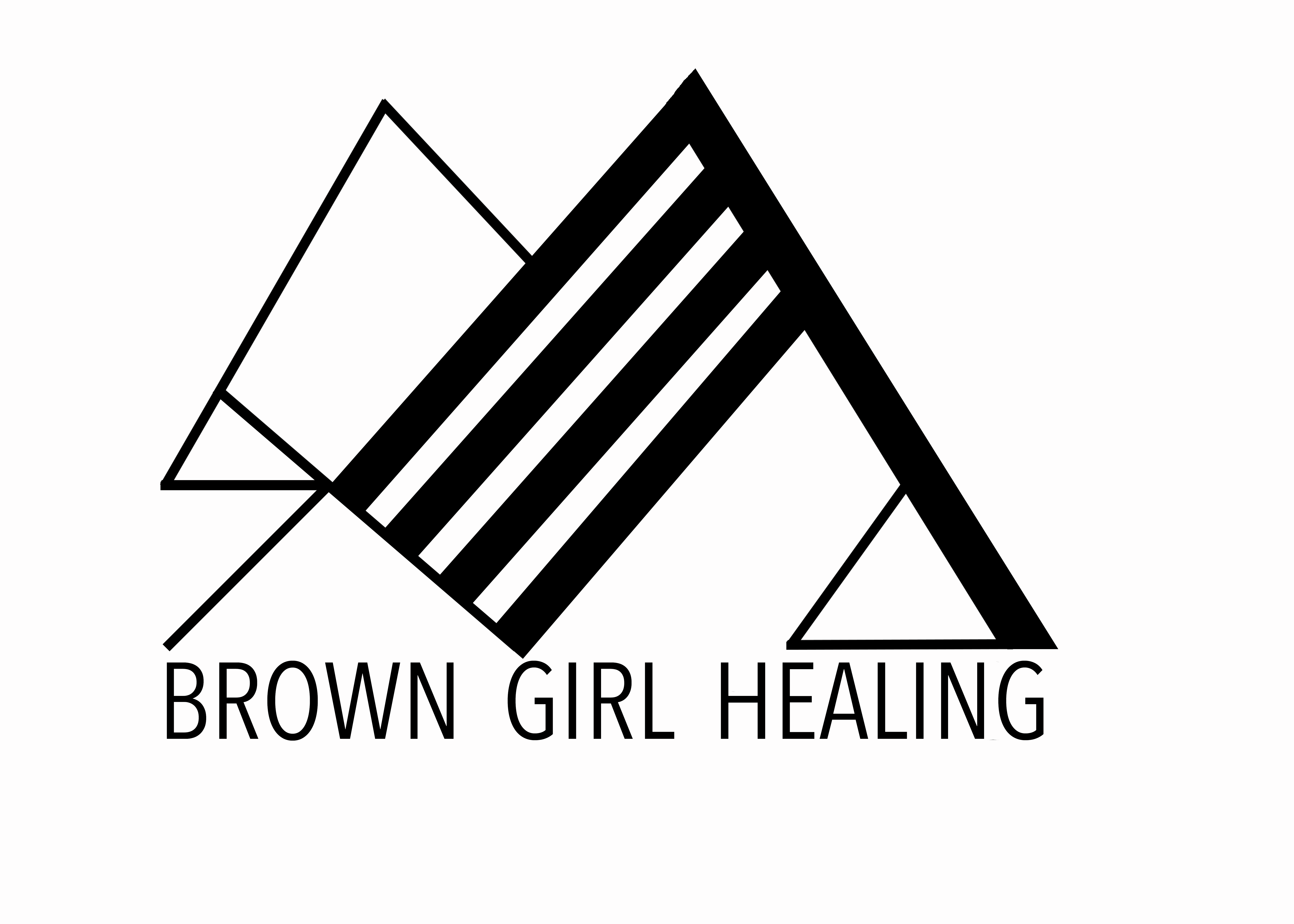RESOURCES
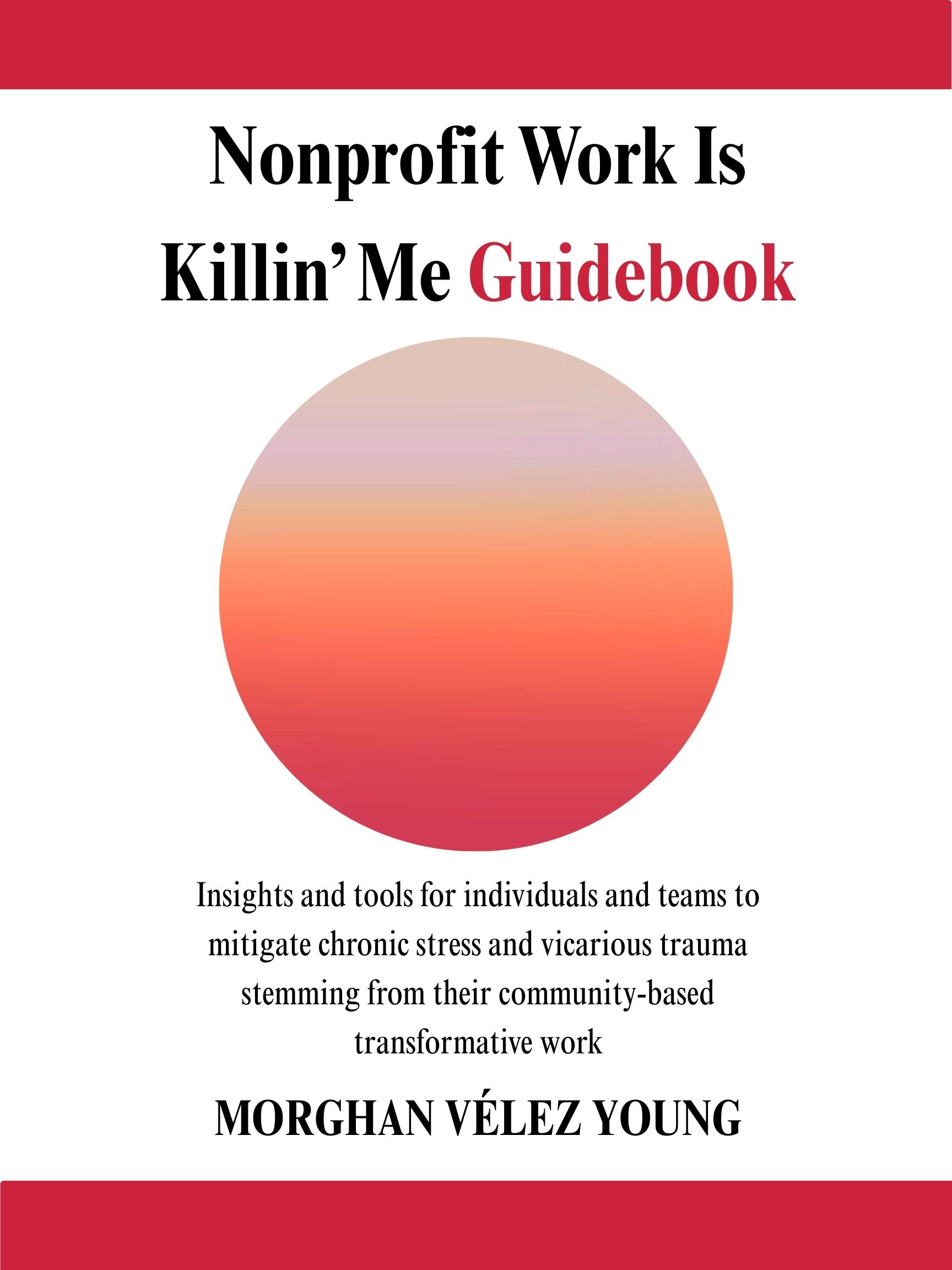
Coming January 2026, the Guidebook is the next step in supporting community-based professionals who are dedicated to transforming historical social issues for which we are all the heirs. In this easy-to-use resource, individuals and teams can access insights and tools for mitigating chronic stress (CS) and vicarious trauma (VT) that comes with their transformative work.
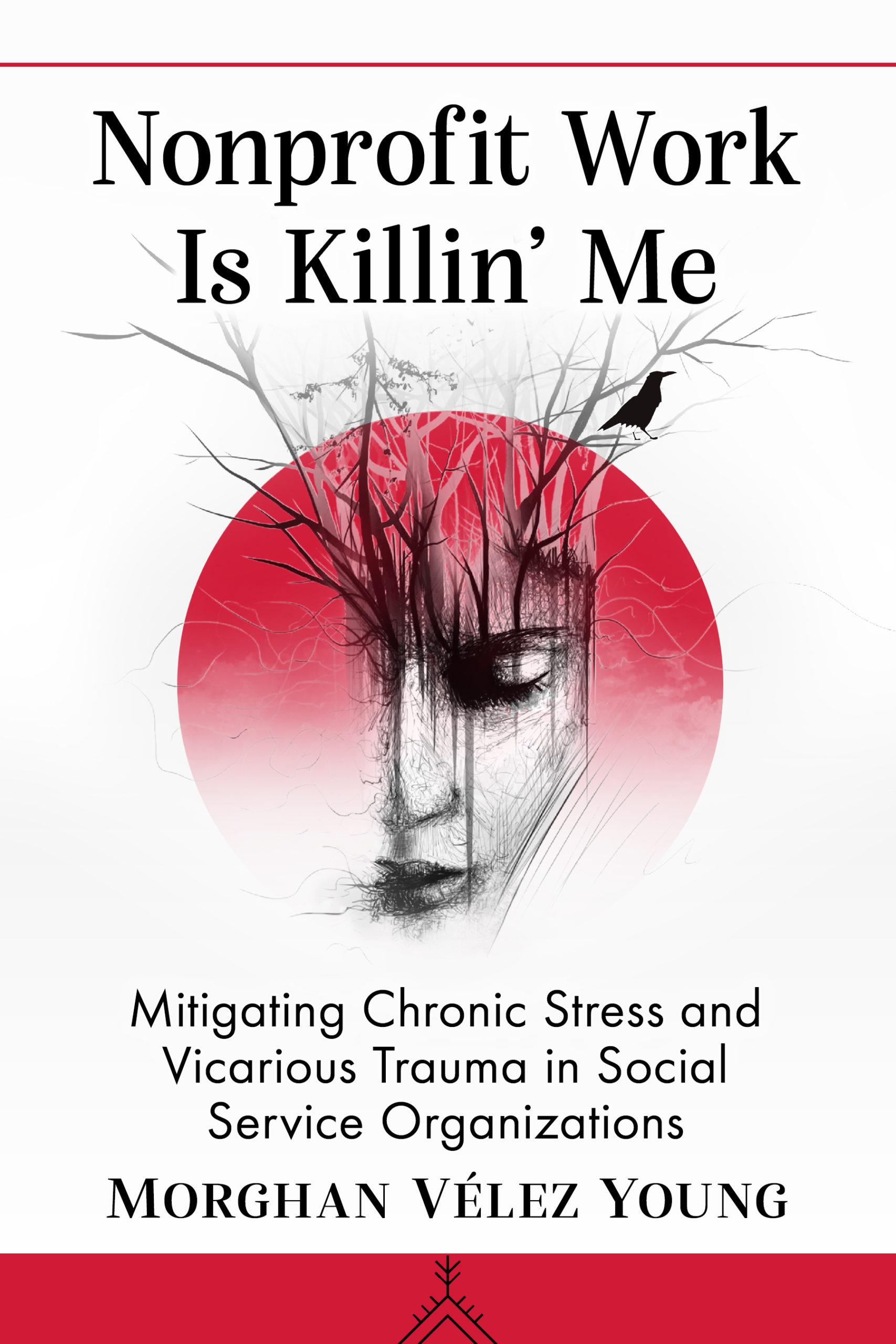
The book was published by Toplight/McFarland Press and celebrates and critically engages truth-telling as a framework for understanding the U.S. phenomenon of nonprofit staff teams and the unmitigated chronic stress (CS) and vicarious trauma (VT) integral to their work. Nonprofit community-based social services teams deliver programs and resources to communities facing the greatest symptoms of inequality in this country. We are fortunate that front-line professionals triage high-risk situations and cultivate opportunities for generational healing. Yet their work has not been comprehensively explored.
Indigenous author presence is vital here for considering the racist and colonizing forces still with us in the nonprofit sector. The book’s truth-telling activates readership to contend with the contradictions of ignoring this foundation. Further, Vélez Young contributes by outlining healing methods for mitigating the negative impact of CS and VT with their Indigenous origins and how to access these methods as individuals and collectives.
Ultimately, this book amplifies the contributions of nonprofit social services professionals while calling for the activation of their capacities to heal and transform oppressive norms and structures within the nonprofit sector.
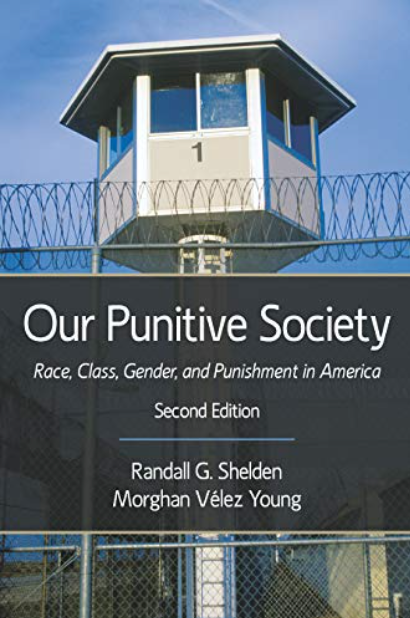
This Waveland Press published book is intended for a wide audience; it explores the primary forces relevant to punishment—poverty and political powerlessness—highlights the necessity for humane alternatives to our current incarceration binge. This provocative overview looks at the business of punishment and at the historical patterns of control regarding slavery, the death penalty, women, the LGBTQ community, juveniles, and supervision.
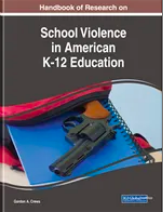
Vélez Young-Alfaro, M. (2018). School violence inside a youth prison school. In Gordon A. Crew (Ed.), School violence in American K-12 education. Hershey, Penn; IGI Global.
This chapter complicates common examples of “school violence” and sheds light on those types of school violence that have adult agents.
Herron, J.D. and Vélez Young-Alfaro, M. (2018). Racialized perceptions of school violence: Suspensions of African-American students. In Gordon A. Crew (Ed.), School violence in American K-12 education. Hershey, Penn; IGI Global.
This chapter explores the role of school suspensions in punishing Black students for real and imagined behavioral issues.
Academic Publications
Dr. Vélez Young has published numerous articles in academic outlets, spanning a range of topics
pertaining to Indigenous and Latinx youth and young adults encompassed by the legal systems.
